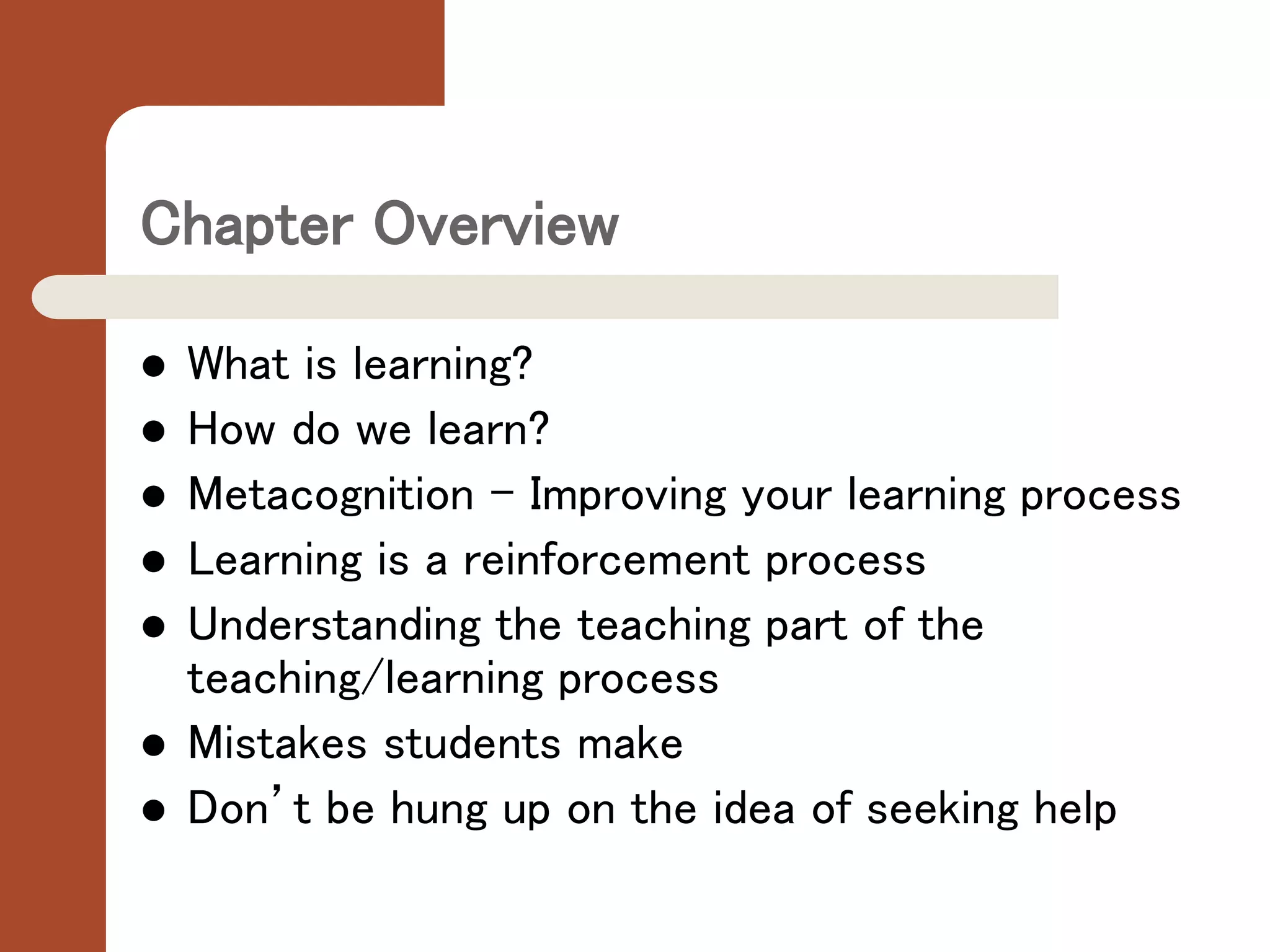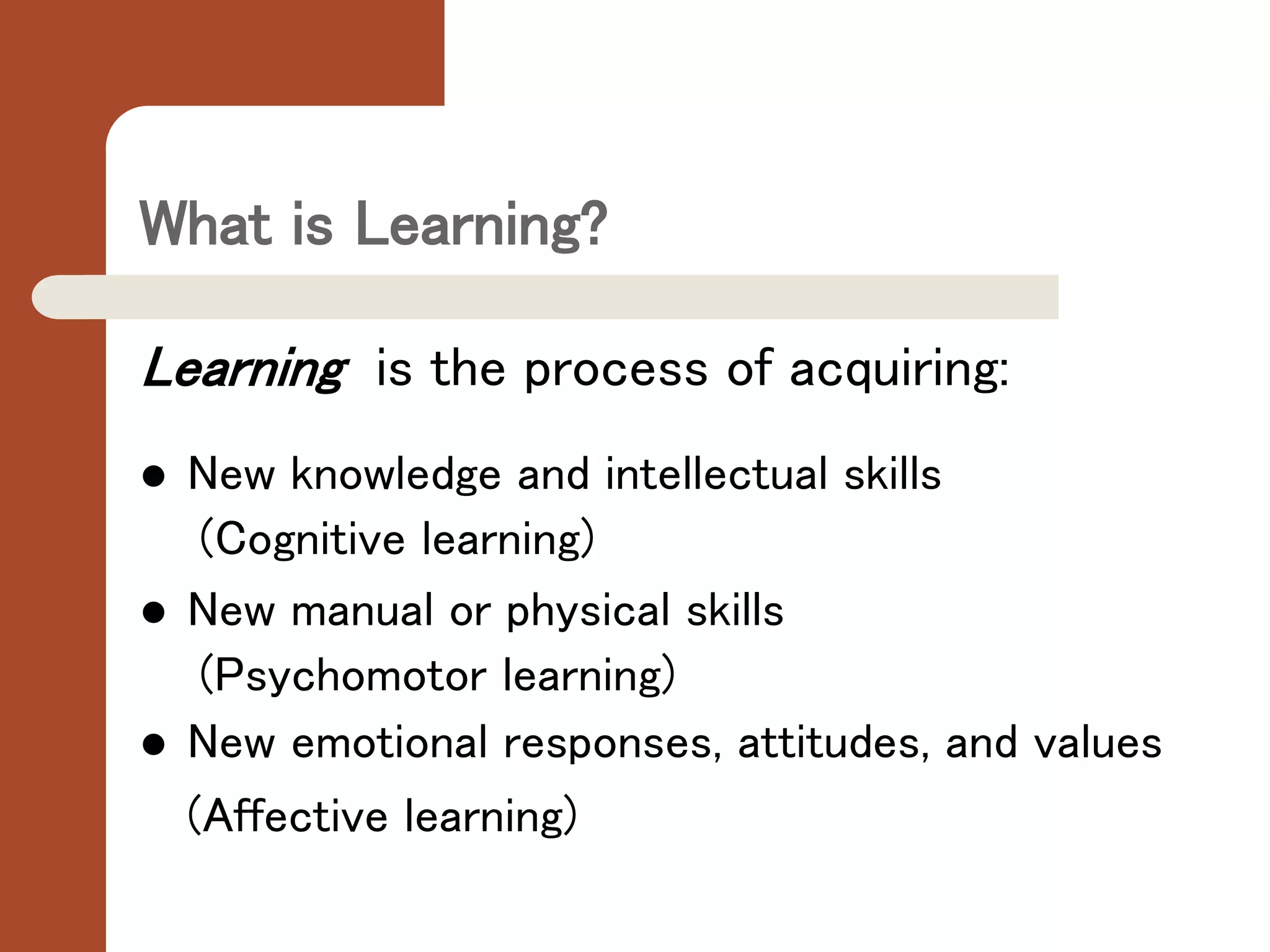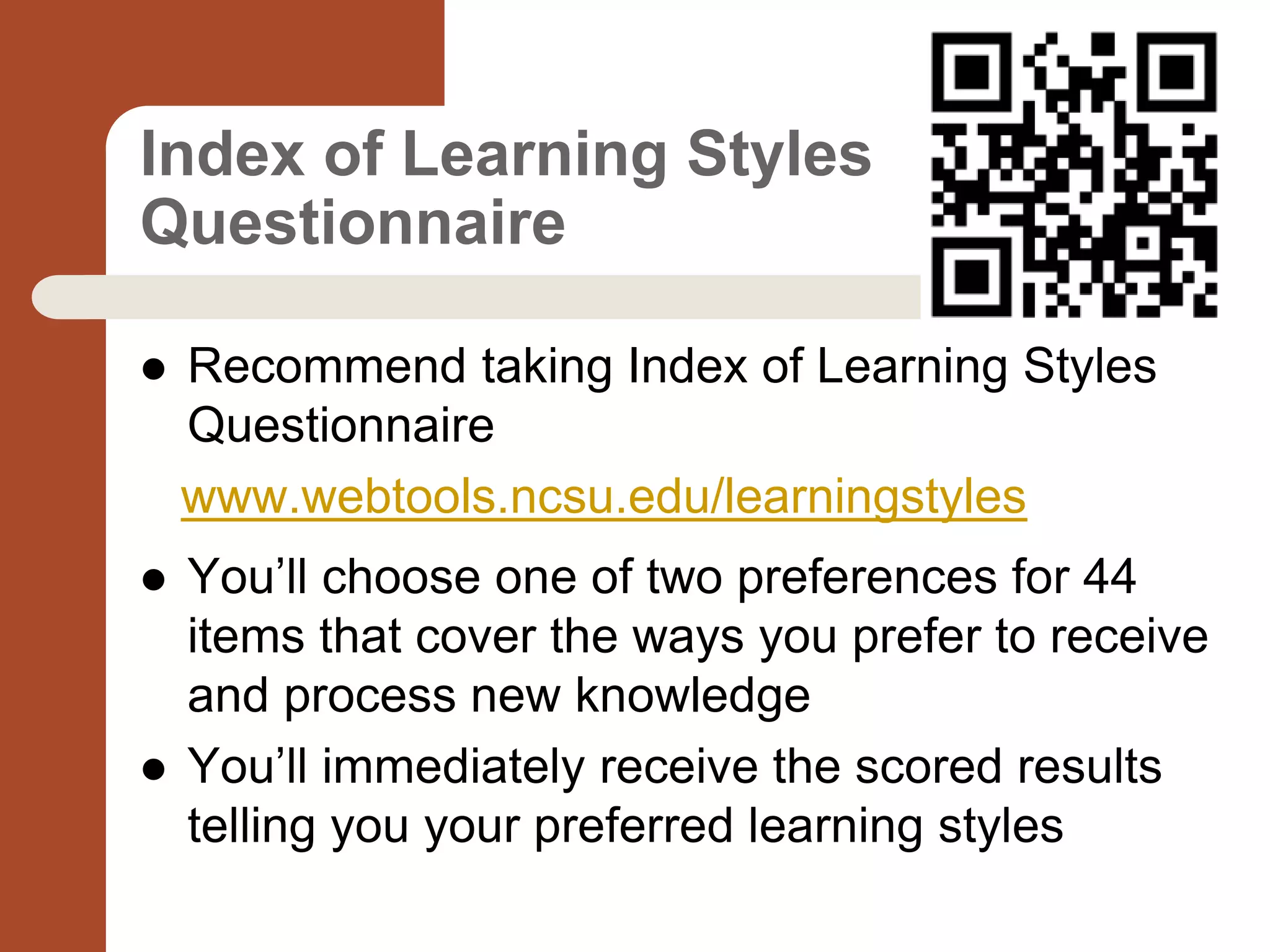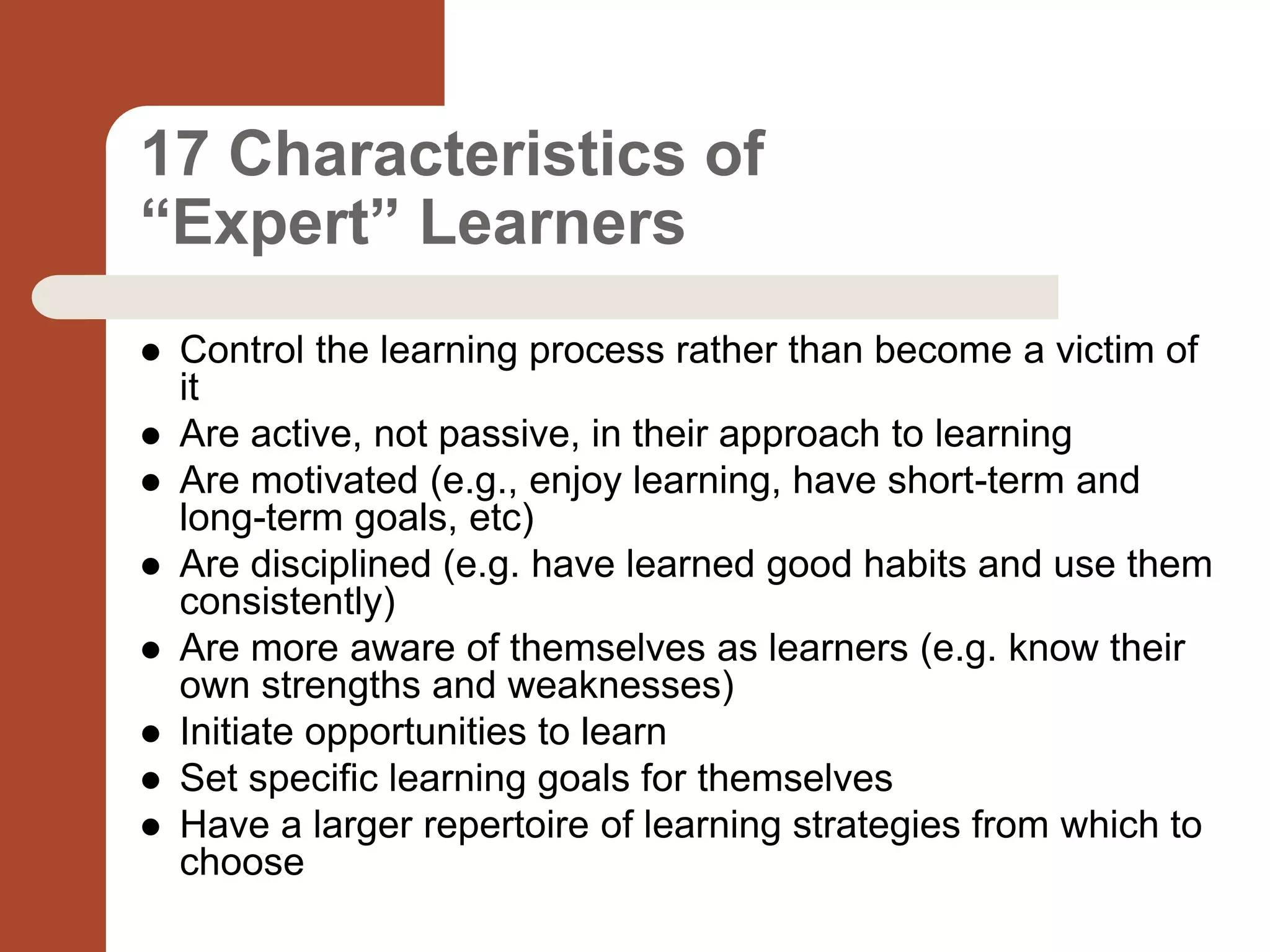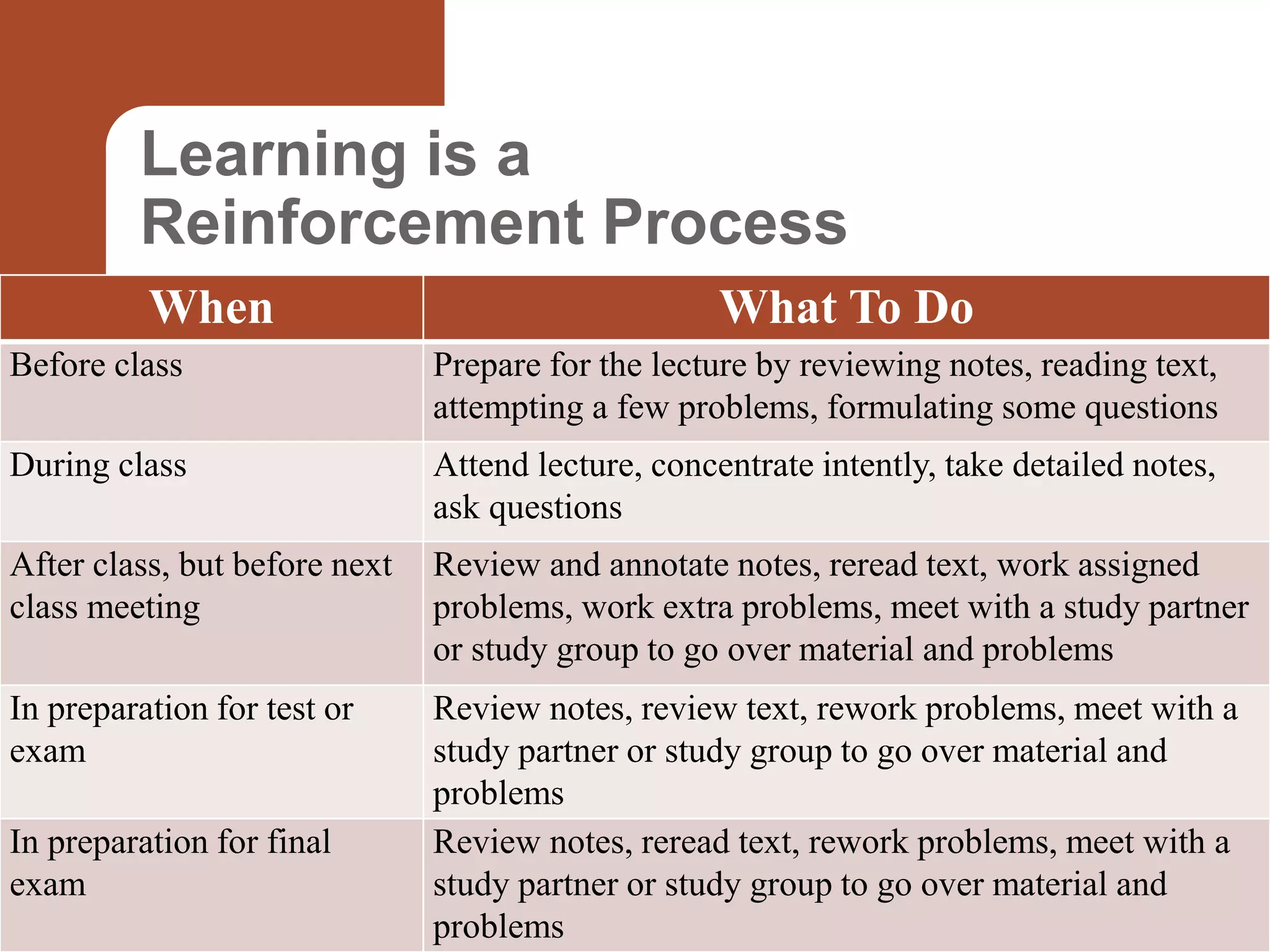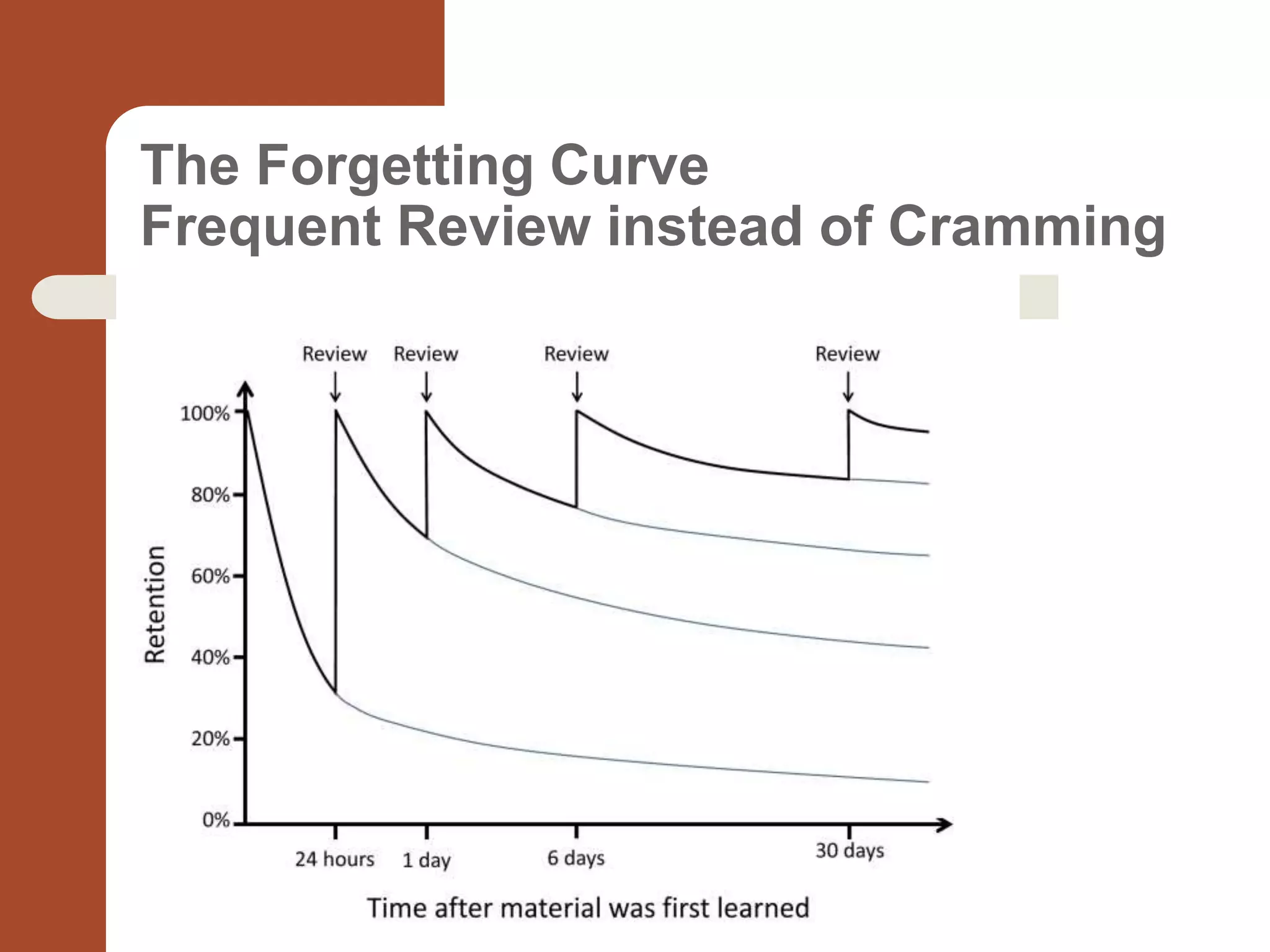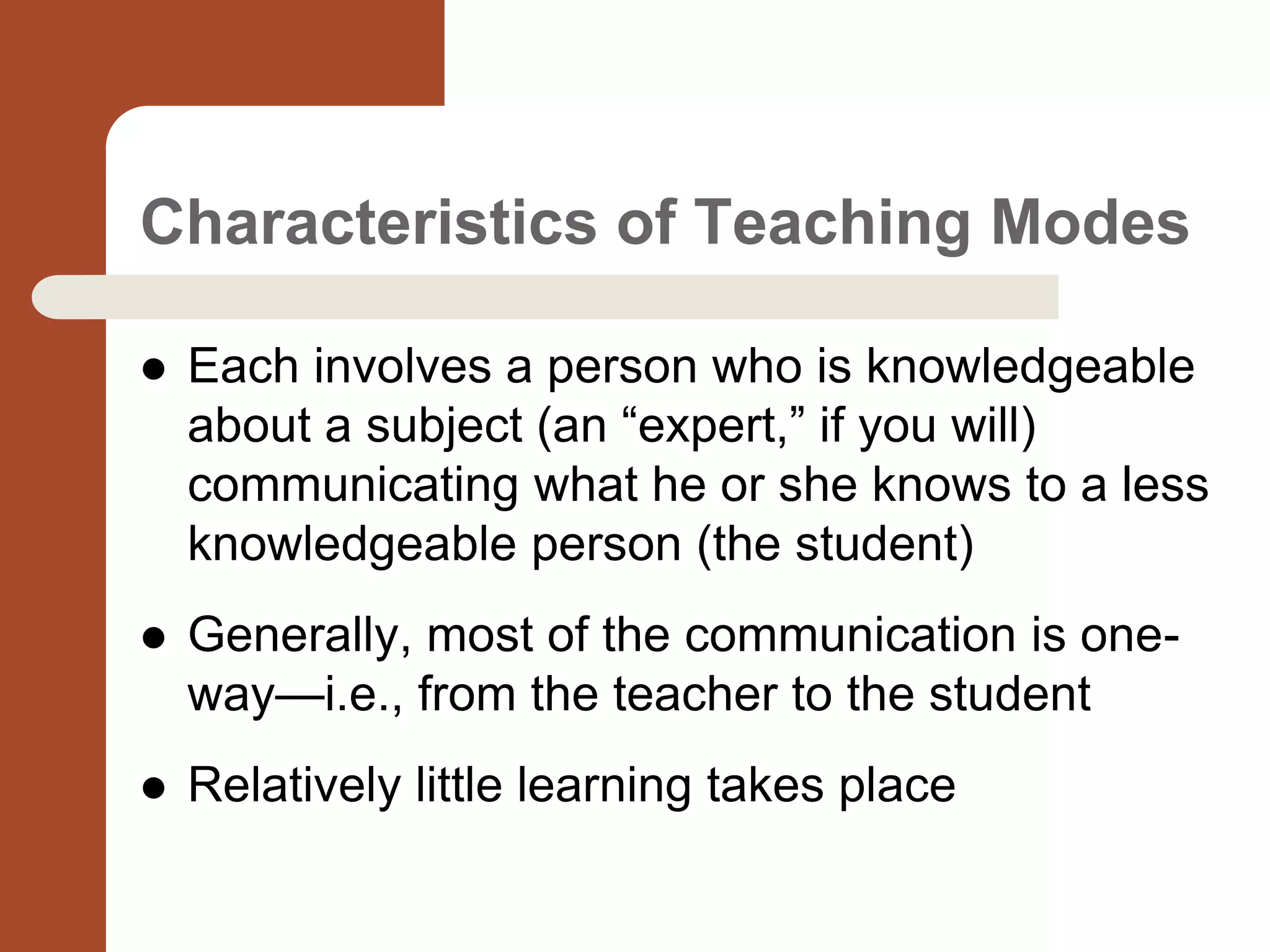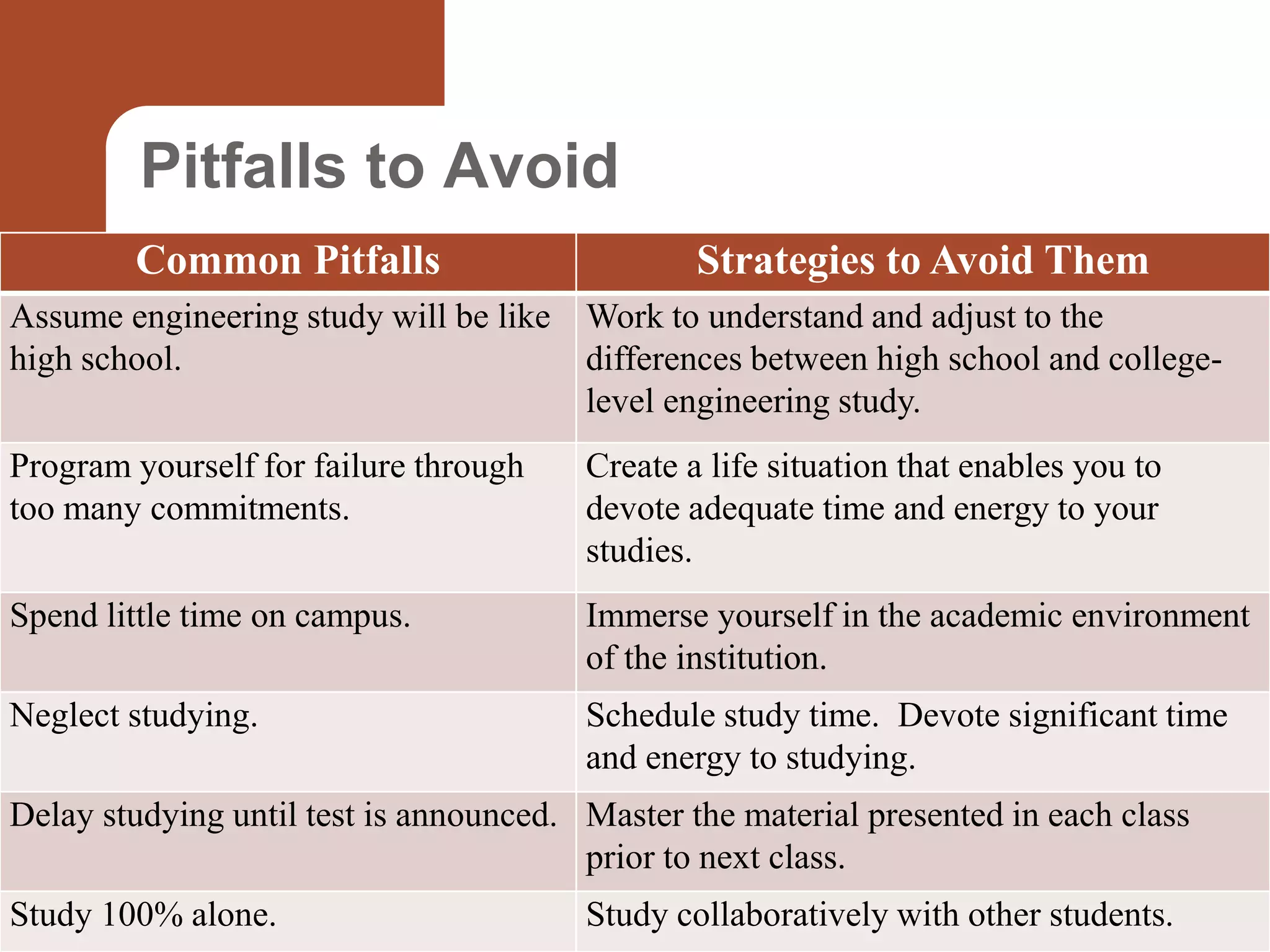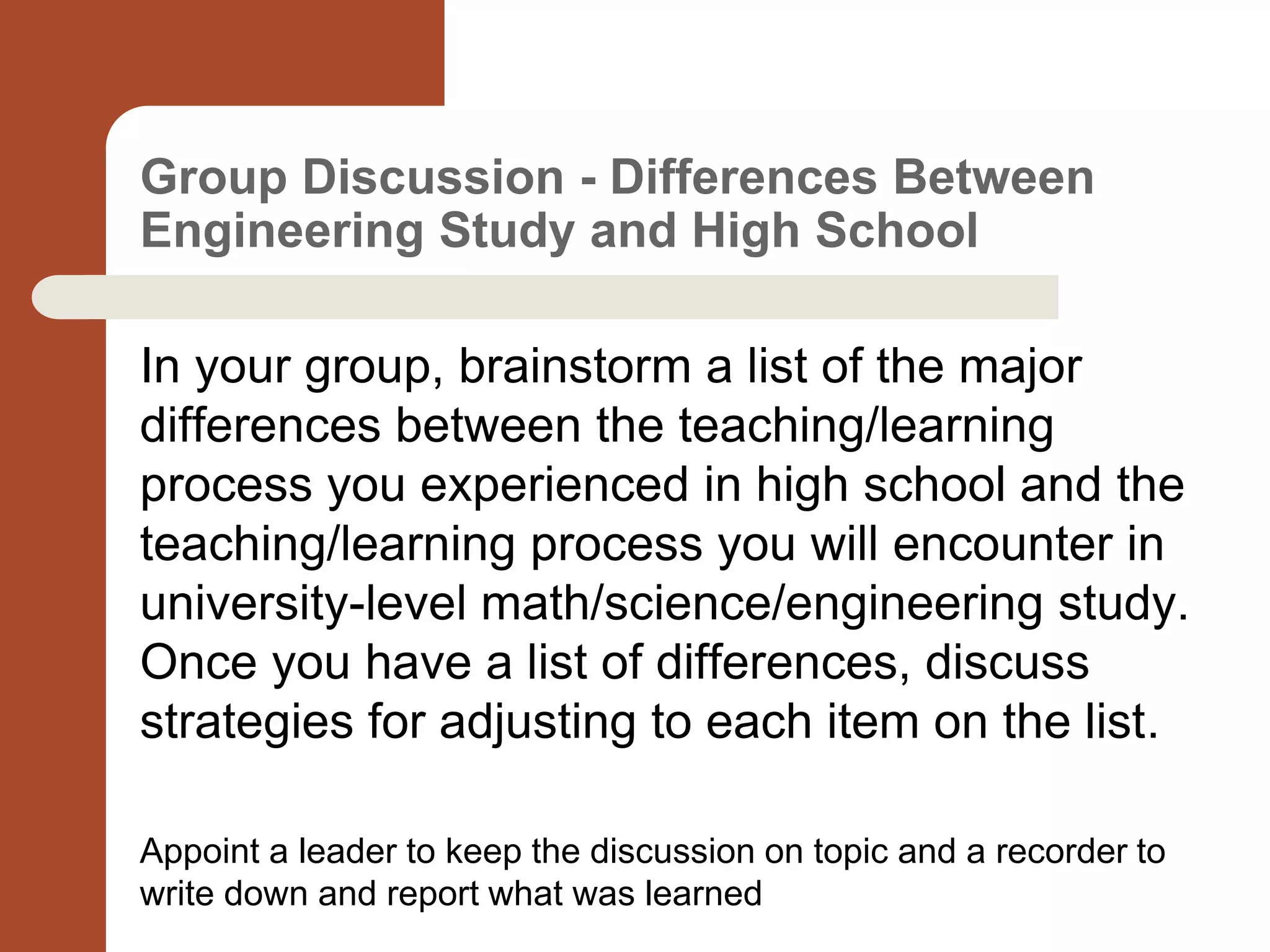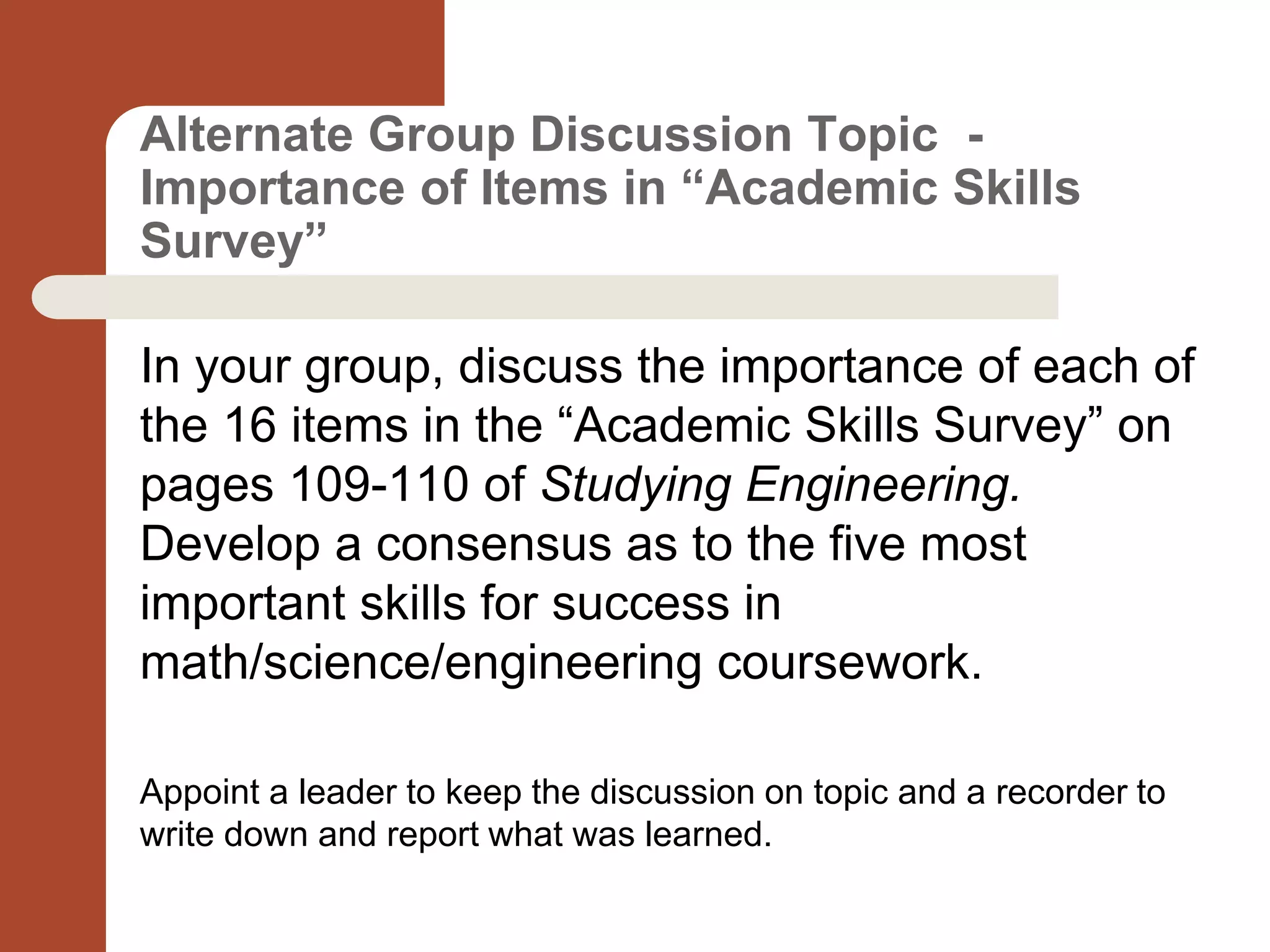This document discusses various aspects of the teaching and learning process. It covers topics like what is learning, how we learn, different learning styles, metacognition, characteristics of expert learners, the forgetting curve, teaching styles, common student pitfalls, and the importance of seeking help. Key points made include that learning involves acquiring new knowledge, skills, and attitudes. Our preferred learning styles impact how we receive and process new information. Expert learners are self-aware, goal-oriented, and employ various learning strategies. Frequent review helps with long-term retention versus cramming. Teaching styles vary in terms of content emphasis, presentation mode, organization, and student participation level. Students should avoid pitfalls like poor time management

